The Teachers on 'Abbott Elementary' Are Humans, Not Heroes
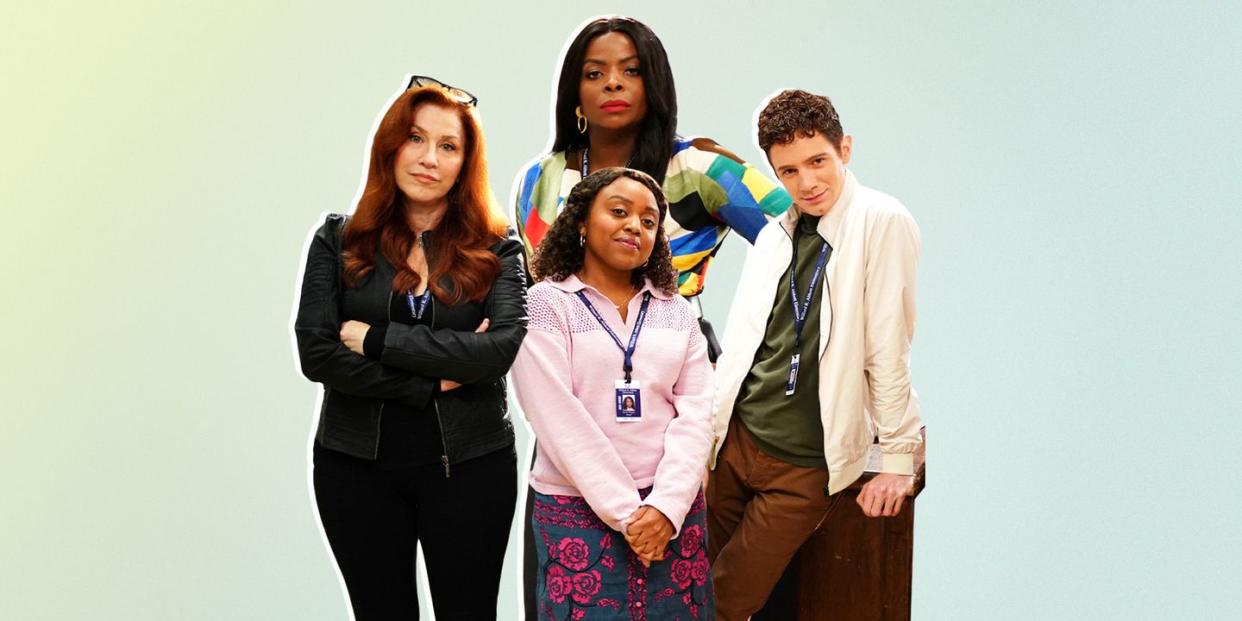
- Oops!Something went wrong.Please try again later.
Imagine trying to make a sitcom comedy about an underfunded elementary school. In this political economy? And on cable, no less. The task sounds as daunting and Sisyphean as actually teaching in an underfunded elementary school. Nevertheless, there’s always an optimist that volunteers for a seemingly impossible task, and in this case, she has managed to pull off what everyone said couldn’t be done: Show-runner and actress Quinta Brunson has made network comedies cool again. Brunson’s show, Abbott Elementary, has captured the hearts of millions and earned nearly universal praise from critics. The series, which wraps up its first season on March 22, has become ABC’s biggest hit since Modern Family. It recently added “the first comedy premiere to ever quadruple in ratings” and “the top show in its hour” to its trophy case.
The show uses the mockumentary style made famous by NBC’s The Office to tell the story of a group of teachers and administrators who work at a west Philadelphia public elementary school. Like The Office, which Brunson says is one of her primary influences, Abbott’s strength lies in its ensemble cast and its revamped deployment of the playful filming style.
Given that most mockumentaries rely heavily on absurdism for laughs (for example Jim's decade-long series of escalating pranks on Dwight), Abbott’s realist and grounded handling of its subject matter makes the show feel unique, even though its sitcom format is nearly as old as television itself. This realism is the result of a personal connection; Brunson’s mother was a teacher in Philadelphia’s public school system for 40 years, a background that lets the show crackle with authentic attachment.
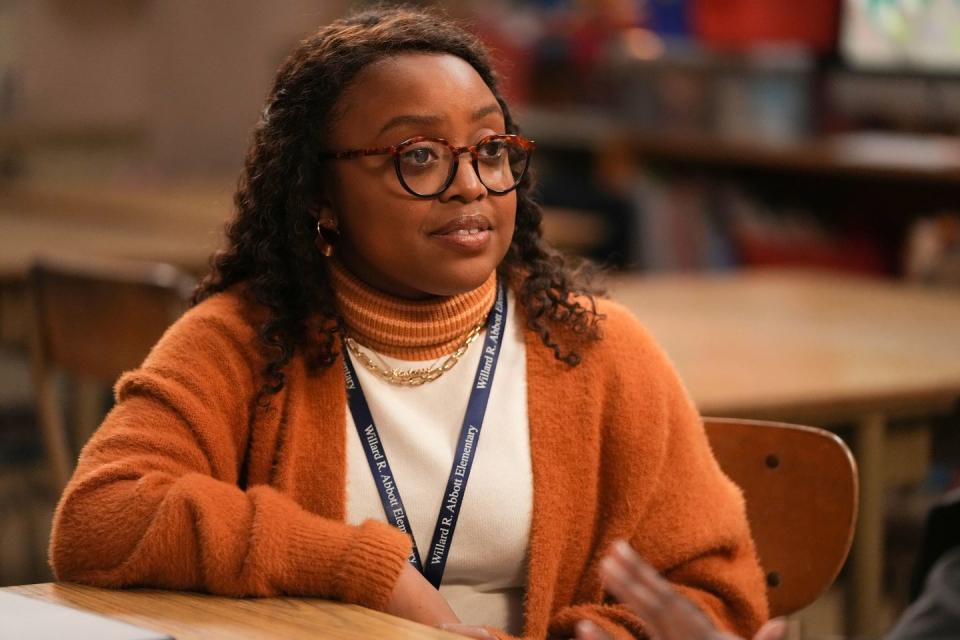
The chaos and inefficiencies of America’s public school system—I say this as a proud graduate of an underfunded, overcrowded public high school—are embraced in the most refreshing of manners. Not through the occasional "dramedic" scene, like Parks and Recreation favored, or through a tidy, summarizing voiceover a la Modern Family, but through the other most important character in a mockumentary-style show: the camera.
In Abbott Elementary the camera functions like a gotcha cam, following the teachers around as they try but fail to keep their shit together. When things fall apart, as they inevitably do, the camera is there to catch the dysfunction. Caught in the moment, all the characters can do is freeze and flash an “I know how this might look” glance in the camera’s direction.
The exception to this pattern is Abbott’s crackly principal, Ava Coleman, played to perfection by Janelle Jameson, who uses the camera like her personal publicist. Not since 2007, when Jan “Please don’t smell me, Michael” Levinson broke hearts at Dunder Mifflin has a TV show had such an unsparingly hilarious female boss. Being free to kick back and laugh along as Ava bullies Jeanine and Abbott’s other teachers feels like receiving a gift that’s so perfect, you aren’t sure you deserve it. Is (Abbot Elementary) the universe’s way of trying to apologize for the pandemic? If so, I’ll take it.
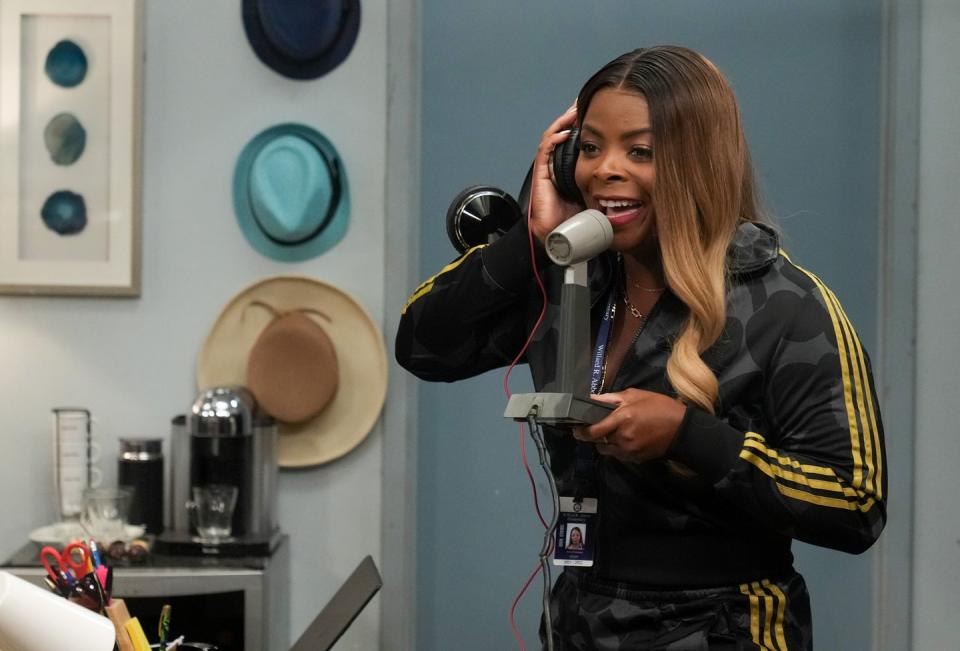
Ava makes fun of everybody in Abbott Elementary equally: the teacher who cares too much, the white ally, the lazy boyfriend, the sub, the stalwart, even the south Philly second grade teacher with obvious ties to the mob. Melissa Schemmenti (Lisa Anne Walter), is “a divorced, none-ya-business” type of woman and Abbott Elementary’s resident tough love practitioner. She microwaves leftover branzino in the teacher’s lounge, and when she’s done, spares a moment before next period to school Abbott’s overly eager, “How To Be An Anti-Racist”-quoting, white teacher, Jacob Hill, in the not so squeaky clean history of Philly’s unions.
Speaking of south Philly teamsters, only HBO’s The Wire has imbued its characters with as rich a sense of place as Abbott manages. If by the end of the first few episodes you don’t know the difference between West Philadelphia and South Philadelphia, that’s on you; it’s not because Abbot Elementary didn’t prepare you properly. The show even devotes an entire cold open to how hot real-life Philadelphia news anchor Jim Gardner is. Plenty of TV shows that came along before Abbot Elementary have used specificity to great comedic effect—see: It’s Always Sunny in Philadelphia, Atlanta, Parks and Recreation, Cheers, The Mary Tyler Moore Show—but none have landed a line so specific and yet, universal, as Mr. Hill’s backhanded compliment about the driving habits of south Philly residents: “I love how you guys just park … anywhere!”
The sheer density of jokes stuffed into a single, 22-minute episode of Abbott should send a chill up the spine of any stand-up comedian working today. In fact, we could all learn a thing or two from the students at Abbott, whose roasting of Jacob, Abbott’s go-to punching bag when Jeanine isn’t available, includes multiple, memorable slam dunks, such as referring to Hill as “Mr. Vampire Weekend” and joking that he must “dream in podcasts.” (As a white person who listens to her fair share of podcasts and chose a Vampire Weekend song for her wedding dance, all I can say is: Bravo, children. It’s an honor to be your bullseye.)
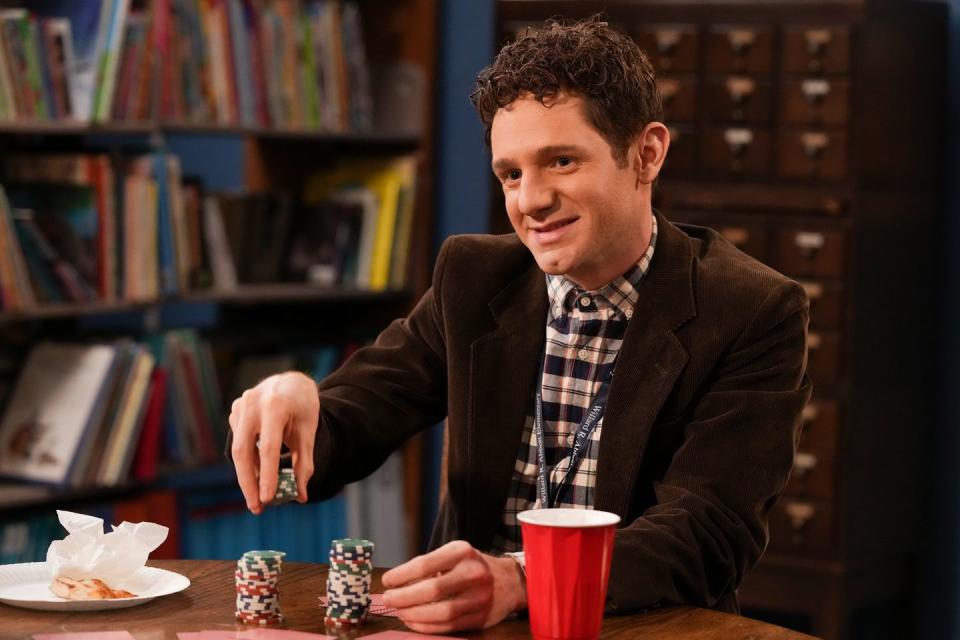
The Abbott Elementary writers have even figured out how to wring a joke out of some of the show’s more tender, equally splendid moments. In one scene, a former student recognizes Mrs. Howard as she walks by and stops to tell her how much she meant to him. Janine, touched by the former student’s appreciation for Mrs. Howard, gushes about how meaningful the moment was before Mrs. Howard cuts her off to say in a cool, commanding tone that belies Ralph’s roots as a Broadway belter, “Sweetheart, I have no idea who that young man was.”
It’s such a beautiful, unsentimental response. On a technical level, the joke works because it uses the audience’s expectations against them. But if you really want to overthink it—and that’s what I do here at Esquire—what gives the scene its razor-sharp edge is the way it frames Mrs. Howard—not as a hero, but as a human. Here's the thing: Valorizing people strips them of their humanity. It creates a convenient distance between us and “everyday heroes” like teachers, social workers, and public defenders that allows us to pretend like they aren’t real; like their issues aren’t solvable or made better by something simple like money. Give a martyr a dollar and she’d just give it away, the logic seems to go.
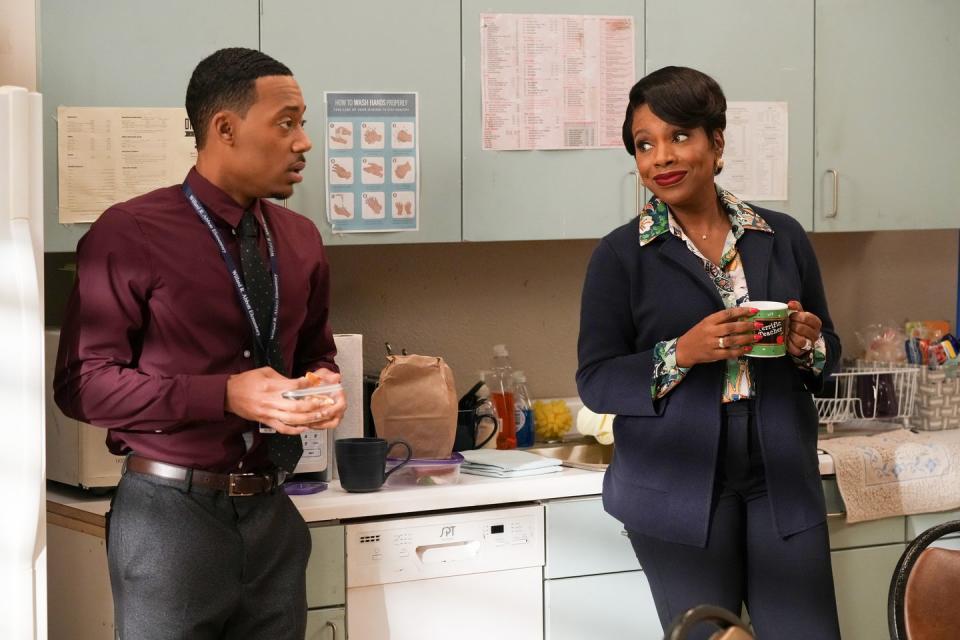
Abbot Elementary rejects this lie wholeheartedly and takes its audience inside the very real stakes of a go-fund-me campaign for school supplies, themselves a damning indictment against a country that claims to value education. But instead of wallowing in politics, Abbott reveals the actual human emotion behind these experiences: the sadness and anger that it has come down to begging, yes, but also the joy you might feel if your campaign goes viral and you end up with extra supplies you can either hoard for yourself or dole out to other deserving teachers. Best of all, Abbott shows its audience that these moments can be humorous too. What Brunson wisely understands is that heartbreak causes people to look away, ashamed of their own complicity and helplessness, but humor helps them lean in. It's the kind of wisdom only a daughter of a West Philadelphia high school teacher could have access to, and I can’t think of a higher compliment to give Brunson and her perfect, black pearl of a TV show than that.
You Might Also Like

